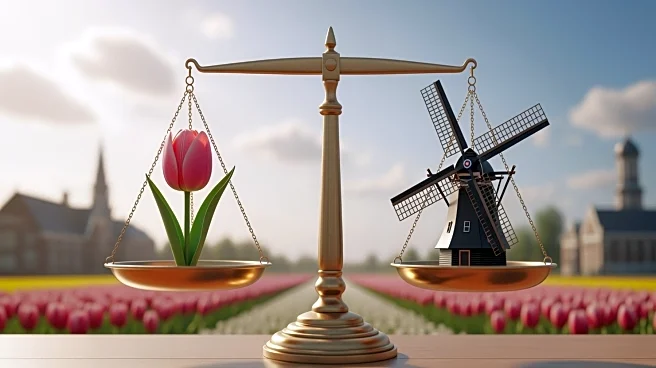What's Happening?
The Netherlands held a general election with results indicating a close contest between the center-left D66 party and the far-right Party for Freedom led by Geert Wilders. An exit poll suggested D66 narrowly
ahead, potentially gaining 27 seats, while Wilders' party might lose 12 seats, finishing with 25. The election was triggered by Wilders after his party withdrew from a coalition government over migration policy disputes. The campaign focused on migration and housing issues, reflecting broader European concerns. Despite Wilders' previous electoral success, mainstream parties have expressed reluctance to form a coalition with him due to past governance challenges.
Why It's Important?
The election outcome is significant for Dutch politics and its role in the European Union. A shift towards the center-left could alter the Netherlands' approach to migration and housing policies, impacting social dynamics and economic strategies. The reluctance of mainstream parties to collaborate with Wilders highlights ongoing tensions around populism and governance stability. The Netherlands, as a key EU member, influences regional economic and political decisions, and its internal political shifts could affect EU cohesion and policy directions.
What's Next?
With no single party likely to secure a majority, coalition negotiations are expected to commence, determining the next government’s composition. The center-left D66's potential rise may lead to policy changes, particularly in migration and housing. The political landscape's evolution will be closely watched by EU partners, given the Netherlands' economic significance. The outcome may also influence broader European debates on populism and integration.
Beyond the Headlines
The election underscores the Netherlands' political polarization, with migration remaining a divisive issue. The results may prompt discussions on coalition-building and governance effectiveness, impacting public trust in political institutions. The election's conduct in diverse venues, including historic sites, reflects the country's unique democratic traditions.










